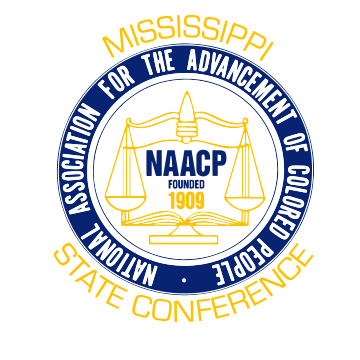Mock: Mississippi’s School Discipline Crisis Continues
2015/05/18 – In January 2013, the U.S. Department of Justice filed a lawsuit against the Meridian Public School District, seeking to address and prevent racial discrimination in student discipline. Soon afterward, Advancement Project — in collaboration with ACLU of Mississippi, the Mississippi State Conference of the NAACP, and the Mississippi Coalition for the Prevention of Schoolhouse to Jailhouse — released Handcuffs on Success, a report exposing Mississippi’s use of extreme discipline and the state’s criminalization of youth of color.
In the report, we present data showing, for every white student who received an out-of-school suspension, more than three black students were suspended out of school. As a national organization on the forefront of the movement to dismantle the school-to-prison pipeline, Advancement Project recognizes the grave significance of the discipline crisis faced by students of color and their families. Across Mississippi, several school districts had suspension rates more than nine times the national average!
This is much to the detriment of black children. By comparing the schools’ out-of-school suspension rates with their Quality Distribution Index — an accountability metric the state Department of Education once used — the report demonstrated students perform better at schools giving out fewer suspensions.
While progress has been made in Meridian following a consent decree and students now benefit from a less subjective code of conduct, there is work to be done in Mississippi. A few years ago, a group of advocates and organizations formed the Mississippi Coalition for the Prevention of Schoolhouse to Jailhouse. The coalition has organized students and parents, facilitated hearings at the Capitol, held know-your-rights trainings and worked with districts across Mississippi to push for discipline reforms that will make schools supportive for all students.
Last month, DeSoto County Parents and Students for Justice (DCPSJ), a grassroots group, joined its efforts by filing a complaint under Title VI of the Civil Rights Act of 1964 against the DeSoto County School District and the DeSoto County Board of Education to challenge the disproportionate suspension of black students in district’s schools. On behalf of DCPSJ, Advancement Project filed the complaint, which indicated that in all middle and high schools in DeSoto County, black students were suspended at a significantly higher rate than their white peers. In some schools, black students were suspended at rates over four times that of white students.
These suspensions are often for the most minor of infractions, such as running in the hallway. In a case that made national news, one DeSoto County high school student was given an indefinite suspension with a recommendation of expulsion for allegedly holding up gang signs in a picture a teacher took of him with his science project. The student held up three fingers — the number on his football jersey.
Rather than suspend and arrest students, DCPSJ has advocated more than a year for the district to pass a new less punitive, more restorative code of discipline that relies on alternatives to suspension addressing misbehavior while keeping students in school where they can learn. It has asked to work with the district to create a new code, drafted its own code, presented demands to the school board, sent advocacy letters and spoken at board meetings. The district is aware of the problems with its discipline policies and refuses to take substantial action.
In light of DeSoto County’s history, this is not surprising. In 1954, two months after the Brown v. Board of Education decision, the white Citizens’ Council formed in DeSoto County, primarily to prevent the integration of public schools. For the next 16 years, school district officials openly violated federal orders and mandates. When DeSoto County finally started to integrate its schools in 1970, hundreds of white students fled to the local segregation academy, which still exists today. Forty years later, the old segregated system between black and white continues to divide DeSoto County, and while there is only one code of discipline, DCPSJ’s complaint shows it is applied differently to black and white students.
DeSoto County is a vignette of what seems a much larger issue in Mississippi, and the complaint filed by DCPSJ is an important step in ensuring all children in the state are able to reach their educational potential. For too long, Mississippi has allowed vestiges of state-sponsored racial discrimination to haunt its schools. It is time to make the transformative changes necessary to make schools a place where all students are given the opportunity to succeed.
Source: The Clarion-Ledger



